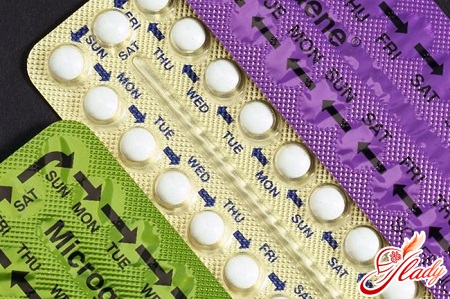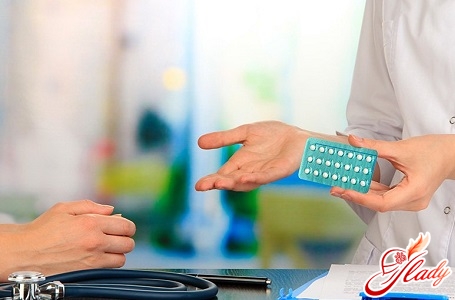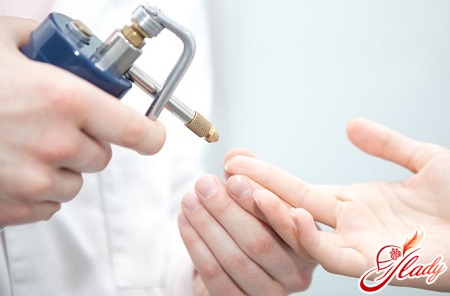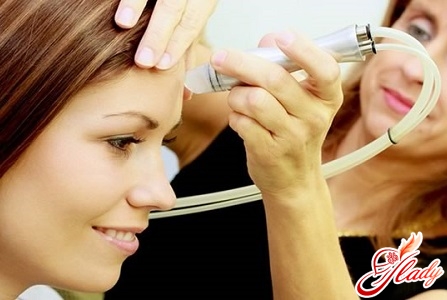
One of the most important issues in the life of eacha woman is an anti-unwanted pregnancy. Abortion is very dangerous and causes irreparable consequences to the female body. However, at present, gynecologists state only the growth of abortions, despite the fact that there are many ways to protect against unwanted pregnancy. Women consciously go to an abortion and put their health at great risk. The main reasons for ignoring the use of various contraceptives are the usual laziness to find suitable means for themselves, and women's hopes that pregnancy will not happen. Many simply do not know the mechanism of action of various methods of contraception or hope for the reliability of rhythmic contraception. And young mothers are afraid to use contraceptive contraceptives during breastfeeding, thinking that they all penetrate into the milk and affect the baby. To date, there are many ways to protect against unwanted pregnancy, among which vaginal pills are especially popular among women.

Vaginal tablets: mechanism of action, advantages and disadvantages
Vaginal tablets are non-hormonalContraceptive means containing active substances that contribute to damage and destruction of the sperm membrane, leading to their death. Such active substances are called spermicides, their role in the composition of vaginal tablets is performed by nonoxynol or benzalkonium. These substances have a harmful effect on spermatozoa, and, in addition, form a very thin film on the walls of the mucous membrane of the vagina. This film performs not only a protective function, but also forms a thickening of mucus in the cervical canal, which also significantly reduces the activity of spermatozoa. So there is a special barrier that prevents penetration of spermatozoa into the uterus. That's why non-hormonal birth control pills are related to barrier means of contraception. Vaginal contraceptives have many advantages. They have antimicrobial and anti-inflammatory effects, protect against various sexually transmitted diseases. Vaginal tablets can be used if women have such serious diseases as uterine fibroids, in which hormonal contraceptives are contraindicated. In addition, they can be used by women after childbirth and during breastfeeding, as well as after abortion and with the inability to use an intrauterine device. In addition, these drugs have virtually no side effects. Thus, having many advantages, non-hormonal birth control pills are very convenient, effective and safe contraceptives for many women. The disadvantages of non-hormonal contraceptives include the following:
- they are not recommended for daily use, otherwise the dysbacteriosis may occur in the vagina;
- in rare cases, some side effects are possible, namely, an allergic reaction to spermicides and skin irritation;
- these drugs should be used immediately before intercourse;
- It is impossible to take some time water procedures.

Types of nonhormonal birth control pills
Active substance - benzalkonium chloride
- Pharmatex.
This contraceptive is considered the mostwidespread and very popular among women. As part of this drug as an active substance contains benzalkonium chloride. This drug is produced not only in the form of vaginal tablets, but also in candles, cream, vaginal balls and tampons. "Pharmatex" effectively operates for 3 hours. The drug has antimicrobial, antiseptic and anti-inflammatory properties, due to which this tool not only prevents the onset of pregnancy, but also protects against various diseases transmitted sexually. Has a pronounced effect against chlamydia, gonococcus, candida, trichomonads, herpes virus and various fungi. The drug "Pharmatex" does not penetrate the blood and milk of nursing mothers, does not affect the microflora of the vagina, does not violate the hormonal background and the menstrual cycle of women.
- Gynecotex.
By its action this preparation is similarPharmatex. It has a spermicidal, antifungal and antiseptic effect, which protects the woman against the risk of infection with various sexually transmitted infections. "Gynecotex" is effective for 4 hours. Does not have any effect on the microflora of the vagina and the hormonal background of the woman, but has some contraindications: inflammation of the vagina or colpitis, hypersensitivity to the components of the drug, irritation of the mucous membrane of the vagina and uterus. "Gynecotex" should be combined with the use of the IUD or vaginal diaphragm. This will enhance its effectiveness. It is not recommended to use soap douching after a sexual act, since soap can destroy the active substance contained in the preparation, thereby reducing its contraceptive effect.
- "Traceptin".
This is an effective contraceptive drug,preventing the onset of unwanted pregnancy. It contains active substance benzalkonium chloride, which has a spermicidal and disinfecting effect. Has side effects, which can manifest as the appearance of a feeling of itching and burning in the vagina. In addition, this drug can not be used in the presence of erosion of the cervix and colpitis. Active substance - nonoxynol
- "Patentex Oval".
In the composition of this drug as an activethe substance contains nonoxynol. This contraceptive means leads to the death of spermatozoa and has antimicrobial, antiviral and antifungal action. Does not cause allergic reactions.
- "Conceptrotrol."
In the composition of this drug as an activesubstance also contains nonoxynol, which has a harmful effect on spermatozoa and protects against various infections and sexually transmitted diseases. After the introduction of "Conceptrotrol" you can not exercise the toilet of the vagina for six hours. 
General rules for the use of vaginal tablets
In the manufacturer's instructions, there are alwaysrecommendations for the use of a particular drug. Basically non-hormonal birth control pills are injected deep into the vagina for 10-15 minutes before sexual intercourse. The applicator can be inserted into the package for convenient administration of the tablet. Most manufacturers claim that the effect of contraceptive can last more than 40 minutes, but practice shows otherwise. Therefore, it is very important to introduce a new vaginal tablet before each sexual intercourse, even before a second sexual intercourse. Before using vaginal tablets, you should pay attention to recommendations for the correct use of the contraceptive, given by the manufacturer. Quite often during their use, water procedures with intimate hygiene products are prohibited for some time before and after sexual intercourse. If, after the introduction of the tablet, the sexual intercourse did not begin within 2 hours, then it is necessary to introduce a new dose of the drug. This fact is the main drawback of using this method of contraception. Patients claim that they are spared this way from unexpected sex. With this method of contraception, you need to plan sexual intercourse, and this is not always possible. Common contraindications to the use of non-hormonal vaginal tablets are: inflammation of the vagina, increased sensitivity to the drug, erosion of the cervix and diseases of the genitourinary system. Some vaginal pills during application can cause a burning sensation in the vagina. Many manufacturers claim that this is normal, although it is recommended in such cases to stop further use of the drug. Before using any contraceptives, it is necessary to consult with your gynecologist, who will help not only to choose the right remedy taking into account the individual characteristics of the body, but also to receive recommendations regarding its use.









